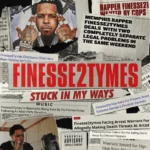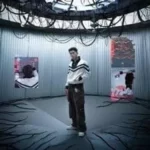Rose Villain – smith & wesson Lyrics
[Testo di “smith & wesson”]
[Strofa 1]
Non mi provocare
Non mi dire che andrà tutto bene
Non dire che è normale
Che dopo la tempesta c’è sempre il Sole
Mai, non sembra passare mai
“Dagli tempo e vedrai”, chi l’ha detto io lo ucciderei
[Pre-ritornello]
Voglio stare bene, ne ho bisogno adesso
O parlerò d’amore ad una Smith & Wesson
Dimmi che senso ha
Provare a volare, se hai le ali rotte
Nessuna logica
Andare a ballare e tornare a mezzanotte[Strofa 2]
Non voglio uscire
Non ho neanche la forza di respirare
Non ho più fame
Neanche la musica mi dà pace
Sai, forse è meglio che vai, me lo rinfaccerai
Fossi in te, neanche io mi amerei
Voglio stare bene, ne ho bisogno adesso
O parlerò di te ad una Smith & Wesson[Ritornello]
Dimmi che senso ha
Provare a volare, se hai le ali rotte
Nessuna logica
Andare a ballare e tornare a mezzanotte
Ahi, ahi-ahi-ahi, ahi-ahi-ahi, ahi-ah
Dimmi che senso ha
Volersi innamorare, se il cuore non ti batte
[Bridge]
E tu non sai quanto mi trattengo
Non ho dolore e non piango
Toccami con un dito e crollo qui sul pavimento
[Outro]
Ahi, ahi-ahi-ahi, ahi-ahi-ahi, ahi-ah
Dimmi che senso ha
Volersi innamorare, se il cuore non ti batte
smith & wesson by Rose Villain
“Smith & Wesson” is a poignant song by Italian artist Rose Villain, featured on her album “Radio Vega,” released in 2023. The track delves into the depths of emotional turmoil and the struggle for inner peace.
Quick summary
The song explores themes of emotional pain, hopelessness, and the search for meaning amidst despair, using the metaphor of a Smith & Wesson to symbolize a desire for control or escape.
In-depth lyrics analysis
The song opens with a powerful declaration of frustration in the first verse, where the singer rejects the notion that everything will be okay. The line “Non dire che è normale che dopo la tempesta c’è sempre il Sole” (“Don’t say it’s normal that after the storm, there’s always the sun”) highlights a deep skepticism towards clichéd reassurances. This sets the tone for the emotional landscape of the song, where the singer feels trapped in a cycle of pain and disillusionment. The phrase “Mai, non sembra passare mai” (“Never, it never seems to pass”) emphasizes the feeling of being stuck in a moment of despair, suggesting that healing feels unattainable. The mention of wanting to harm those who offer empty platitudes reflects a raw, visceral reaction to the inadequacy of such comfort in the face of real suffering.
In the pre-chorus, the singer expresses an urgent need for relief, stating, “Voglio stare bene, ne ho bisogno adesso” (“I want to feel good, I need it now”). This urgency is juxtaposed with the dark imagery of turning to a Smith & Wesson, a firearm that symbolizes a desire for control or an escape from overwhelming emotions. This metaphor suggests that the singer feels so powerless that they contemplate drastic measures to regain a sense of agency in their life.
The chorus poses a haunting question: “Dimmi che senso ha, provare a volare se hai le ali rotte” (“Tell me what sense it makes to try to fly if you have broken wings”). This line encapsulates the central theme of the song—an exploration of futility in the face of emotional and mental struggles. The imagery of broken wings conveys a sense of hopelessness, as the singer grapples with the idea of pursuing love and happiness when they feel fundamentally broken. The repetition of the phrase “Nessuna logica andare a ballare e tornare a mezzanotte” (“No logic in going dancing and returning at midnight”) further emphasizes the absurdity of trying to engage in life’s pleasures when one is in such a state of despair.
In the second verse, the singer’s isolation deepens. They express a lack of energy, stating, “Non voglio uscire, non ho neanche la forza di respirare” (“I don’t want to go out, I don’t even have the strength to breathe”). This line powerfully conveys the weight of depression, where even the simplest acts become monumental challenges. The mention of losing interest in food and music, once sources of comfort, illustrates a profound disconnection from joy and life itself. The singer’s suggestion that perhaps it’s better for their partner to leave reflects a self-deprecating acknowledgment of their unlovable state, further deepening the sense of hopelessness.
The pre-chorus repeats, reinforcing the urgent need for relief, while the chorus reiterates the futility of seeking love when the heart feels numb. The bridge introduces a moment of vulnerability, where the singer admits to holding back their emotions, stating, “E tu non sai quanto mi trattengo” (“And you don’t know how much I hold back”). This line reveals the internal struggle of wanting to express pain but feeling unable to do so, leading to a sense of collapse at the slightest touch. The outro echoes the earlier sentiments, repeating the question about the sense of wanting to love when the heart is unresponsive, leaving listeners with a lingering sense of despair and vulnerability.

















Leave a Reply